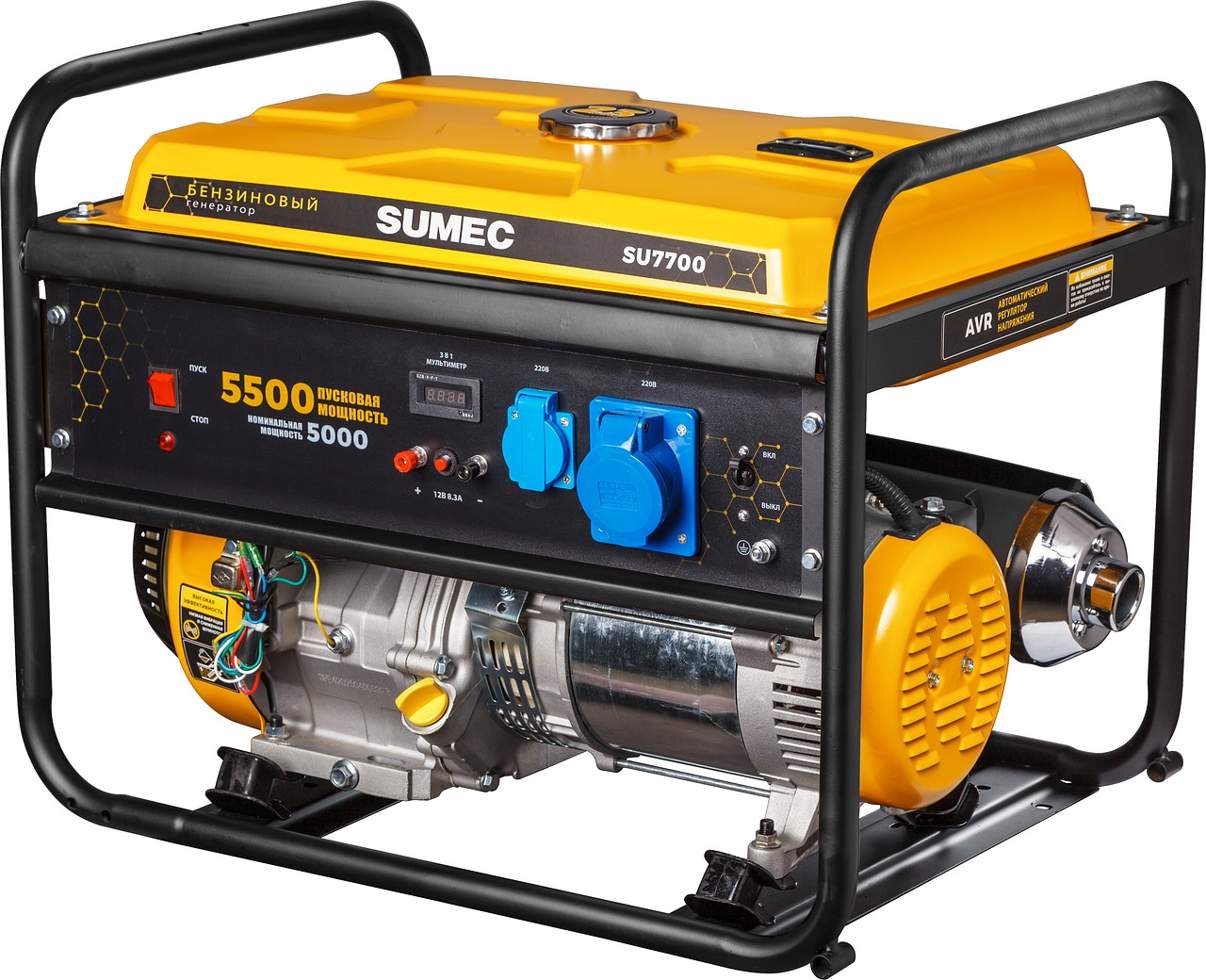Introduction
In this comprehensive buyers guide, we will explore the pros and cons of gas, propane, and diesel standby generators. Standby generators are essential for ensuring uninterrupted power supply during outages, providing peace of mind and maintaining the functionality of critical systems in homes and businesses. These generators automatically kick in during a power failure, ensuring that you are never left in the dark.
When considering a standby generator, understanding the differences between fuel types is crucial. Each fuel type—gas, propane, and diesel—offers distinct advantages and disadvantages that can impact your decision. Factors such as fuel availability, storage, cost, and environmental impact all play a role in determining which generator is right for you.
Gasoline generators are often praised for their convenience and widespread availability. However, they require frequent refueling and can be less efficient over long periods. Propane generators, on the other hand, offer cleaner burning and longer shelf life but may incur higher upfront installation costs. Diesel generators are known for their durability and efficiency in large-scale operations, though they can be noisier and require more maintenance.
As we delve into each fuel type, this guide will provide you with a detailed analysis, helping you weigh the pros and cons of gas, propane, and diesel standby generators. By the end, you should have a clearer understanding of which generator best suits your specific needs and circumstances, ensuring you make an informed decision for reliable and efficient power during outages.
Overview of Standby Generators
Standby generators play a crucial role in ensuring uninterrupted power supply during outages, making them an essential component for both residential and commercial properties. These generators automatically kick in when the main power supply is disrupted, providing a seamless transition to backup power. This functionality is particularly vital in regions prone to severe weather conditions or where power reliability is a concern.
Standby generators operate by continuously monitoring the power status. When a power outage is detected, they activate an internal combustion engine to generate electricity. This process is executed within seconds, minimizing downtime and maintaining the functionality of essential appliances and systems. There are three primary types of standby generators available on the market: gas, propane, and diesel. Each type offers unique advantages and considerations, making it important to select one that aligns with your specific needs.
When choosing a standby generator, several key factors must be taken into account. Firstly, power requirements are paramount. Assess the total wattage needed to keep essential devices and systems operational during an outage. This includes critical infrastructure such as heating and cooling systems, medical equipment, and refrigeration units. Additionally, budget constraints play a significant role in the decision-making process. While initial costs and installation fees can vary, it is essential to consider long-term operational and maintenance expenses.
Environmental considerations are also crucial when selecting a standby generator. Different fuel types have varying impacts on the environment. For instance, propane is known for its cleaner burn compared to diesel, which can be a deciding factor for those prioritizing eco-friendliness. Additionally, the availability and storage of fuel should be evaluated. Propane and gas generators often require larger storage tanks, while diesel generators typically need more frequent refueling.
By carefully considering these factors, homeowners and businesses can make informed decisions that ensure reliable power supply, align with budgetary constraints, and meet environmental standards. Standby generators offer peace of mind, ensuring that essential services remain uninterrupted during power outages.
Gas Standby Generators
Gas standby generators are a popular choice for many homeowners and businesses due to their efficiency and reliability. These generators operate by converting natural gas into electrical power, making them exceptionally suitable for areas with a consistent gas supply. Given their direct connection to the utility gas line, they eliminate the need for fuel storage, which is a significant advantage over other types of standby generators.
One of the most compelling benefits of gas standby generators is their cost-effectiveness. Natural gas is generally more affordable than propane or diesel, leading to lower operational costs. This affordability, combined with the high efficiency of gas generators, ensures that users get a good return on investment. Additionally, natural gas is widely available in urban and suburban areas, which enhances the convenience and reliability of these generators.
However, there are some drawbacks to consider. While the absence of fuel storage is a benefit, it also means that in the event of a gas line disruption, the generator becomes non-operational. This vulnerability can be a critical concern during natural disasters when gas supply lines may be compromised. Furthermore, gas generators require regular maintenance, including checks on connections and the generator unit itself, to ensure optimal performance and safety.
Environmental impact is another factor to weigh. Although natural gas burns cleaner than diesel, it is still a fossil fuel and contributes to greenhouse gas emissions. This environmental consideration may be a significant con for those prioritizing eco-friendliness. Moreover, the installation of gas standby generators can involve complex regulatory requirements and safety protocols, which may increase initial setup costs and time.
In summary, gas standby generators provide a reliable, cost-effective solution with easy fuel access and high efficiency. However, potential issues with fuel supply during emergencies, maintenance needs, and environmental impacts must be carefully evaluated to ensure they align with the user’s requirements and priorities.
Propane Standby Generators
Propane standby generators are a reliable source of backup power, particularly valued for their versatility and efficiency. These generators operate by using propane as fuel, which is known for its cleaner burning properties compared to gasoline or diesel. This characteristic makes propane generators an environmentally friendly option, producing fewer emissions and pollutants. This is especially crucial in scenarios where maintaining air quality is a priority, such as in residential areas or eco-sensitive zones.
One of the significant advantages of propane as a fuel is its longer shelf life. Unlike gasoline, which can degrade over time, propane remains stable and effective even after prolonged storage. This makes propane generators an excellent choice for emergency preparedness, as the fuel can be stored for extended periods without degradation. This reliability ensures that the generator will function effectively when needed, providing peace of mind to users.
Additionally, propane generators offer consistent and dependable performance. Propane’s ability to vaporize and combust efficiently even in cold weather conditions ensures that these generators can perform reliably in various climates. This is particularly beneficial in regions prone to harsh winters, where other fuels might struggle to ignite or maintain efficiency.
However, there are some disadvantages associated with propane standby generators. One notable drawback is the higher initial cost. Propane generators and their installation can be more expensive compared to their gasoline or diesel counterparts. Despite the long-term benefits and efficiency, the upfront investment may be a consideration for budget-conscious buyers.
Fuel availability and storage also present challenges. Propane requires specialized storage tanks, which can take up significant space and need regular maintenance to ensure safety. Moreover, in certain areas, propane may not be as readily available as other fuels, potentially complicating refueling logistics during extended power outages.
In conclusion, while propane standby generators offer numerous advantages such as cleaner burning, longer fuel shelf life, and reliable performance, potential buyers must also weigh the higher initial costs and storage considerations. Understanding these pros and cons can help in making an informed decision based on specific needs and circumstances.
Diesel Standby Generators
Diesel standby generators are a popular choice for providing reliable backup power in various settings. These generators operate by utilizing a diesel engine to convert fuel into electrical energy. Diesel engines are known for their robustness and ability to deliver consistent power over extended periods, making them a preferred option for critical applications.
One of the primary benefits of diesel generators is their fuel efficiency. Diesel engines typically consume less fuel compared to their gasoline counterparts, which translates into longer runtime and reduced fuel costs. This efficiency is particularly advantageous in scenarios where the generator needs to run for extended periods, such as during prolonged power outages.
Durability is another significant advantage of diesel standby generators. Diesel engines are built to withstand heavy use and are known for their longevity. This durability ensures that the generator can operate reliably for many years with proper maintenance. Additionally, diesel fuel has a longer shelf life compared to gasoline, reducing the risk of fuel degradation over time.
Lower operational costs are also a key benefit of diesel generators. The combination of fuel efficiency and durability results in reduced maintenance and fuel expenses. Furthermore, diesel generators are often more straightforward to maintain, with fewer components that require regular servicing.
However, diesel standby generators also come with certain drawbacks. One of the main concerns is the noise level. Diesel engines tend to be louder than their gas or propane counterparts, which can be a significant disadvantage in residential areas or noise-sensitive environments. Additionally, diesel generators produce higher emissions, contributing to environmental pollution. While advancements in technology have led to cleaner diesel engines, they still lag behind other fuel types in terms of emissions.
The initial investment cost for diesel generators can also be higher compared to other types. The robust construction and high-quality materials used in diesel engines contribute to this increased cost. However, the long-term savings in operational and maintenance expenses can offset the initial outlay over time.
In summary, diesel standby generators offer numerous benefits, including fuel efficiency, durability, and lower operational costs, making them a reliable choice for many applications. However, potential buyers should also consider the drawbacks, such as noise levels, emissions, and initial investment costs, to determine if a diesel generator is the right fit for their needs.
Comparative Analysis: Gas vs Propane vs Diesel
When evaluating standby generators, it is crucial to consider several key factors including cost, efficiency, environmental impact, maintenance, and reliability. Each fuel type—gasoline, propane, and diesel—offers distinct advantages and drawbacks that may influence your decision based on your specific needs and circumstances.
Firstly, cost is a significant factor. Gasoline generators are generally less expensive upfront compared to propane and diesel models. However, gasoline prices can fluctuate significantly, leading to potential long-term cost variability. Propane generators tend to have a moderate initial cost and offer stable fuel prices, making budgeting easier over time. Diesel generators, while typically more expensive upfront, often have lower fuel consumption rates, potentially offsetting the higher initial investment through reduced operating costs.
In terms of efficiency, diesel generators usually stand out. Diesel engines are known for their fuel efficiency and ability to generate more power per unit of fuel. Propane generators are also efficient, especially in cold weather, where they outperform gasoline engines. Gasoline generators, while effective, may not offer the same level of efficiency, especially in extended use scenarios.
The environmental impact of each fuel type is another critical consideration. Propane is considered a cleaner-burning fuel, producing fewer pollutants and greenhouse gases compared to gasoline and diesel. Diesel engines, despite their efficiency, emit higher levels of particulates and nitrogen oxides, contributing to air pollution. Gasoline generators fall somewhere in between but still produce more emissions than propane.
Maintenance requirements vary across the fuel types. Diesel generators generally require less frequent maintenance due to their robust construction and slower engine wear. However, when maintenance is needed, it can be more complex and costly. Propane and gasoline generators typically require more regular maintenance but are generally easier and cheaper to service.
Finally, reliability is paramount. Diesel generators are renowned for their durability and long operational life, making them a reliable choice for critical applications. Propane generators offer reliable performance and are less prone to fuel degradation, which is beneficial for long-term storage. Gasoline generators, while reliable, may face issues with fuel stability over time, particularly if the fuel is not treated or rotated regularly.
Considering these factors collectively can help you make an informed decision about which standby generator fuel type best meets your specific needs and circumstances.
Choosing the Right Standby Generator for Your Needs
When selecting a standby generator, it is crucial to consider various factors to ensure it meets your specific requirements. The first aspect to evaluate is your location. If you reside in an area prone to frequent power outages or extreme weather conditions, a more robust and reliable generator might be necessary. Additionally, local regulations and fuel availability can influence your choice between gas, propane, and diesel generators.
Understanding your power requirements is another key factor. Make a list of essential appliances and systems you want to keep operational during an outage. This list might include refrigerators, heating systems, water pumps, and medical equipment. Calculate the total wattage needed and select a generator that can handle at least that capacity, preferably with some extra margin to account for future needs or additional devices.
Budget constraints also play a significant role in the decision-making process. While initial costs are important, consider long-term expenses such as fuel consumption, maintenance, and potential repairs. Gasoline generators are often cheaper upfront but may have higher operational costs. Propane and diesel generators might be more expensive initially but can offer better fuel efficiency and longevity.
Environmental considerations are increasingly relevant in today’s world. Diesel generators typically have higher emissions compared to gas and propane options. If reducing your carbon footprint is a priority, you might lean towards gas or propane, both of which are cleaner-burning fuels. Some regions also offer incentives or rebates for choosing environmentally friendly options.
Finally, evaluating different models and consulting with professionals can provide valuable insights. Look for generators with good reviews, reliable warranties, and robust customer support. Professional advice can help tailor your choice to your specific needs, ensuring you select the most suitable standby generator for your situation.
Conclusion
In this comprehensive guide, we have delved into the various aspects of standby generators powered by gas, propane, and diesel. Each fuel type presents its own set of advantages and disadvantages, which are critical to consider for anyone in the market for a standby generator. Understanding these differences is paramount to making an informed decision that aligns with your specific needs and requirements.
Gas-powered generators are known for their convenience and ready availability, making them a popular choice for residential use. However, they may require more frequent maintenance and can be less efficient in colder climates. Propane generators offer the benefit of a longer shelf life for the fuel and cleaner burning, but they can be more expensive to operate. Diesel generators, on the other hand, are highly efficient and robust, often preferred for larger-scale or commercial applications, yet they can be noisier and produce more emissions.
Ultimately, the best standby generator for your situation will depend on a variety of factors, including the size of your property, your budget, and the specific power requirements you have. It is crucial to weigh the pros and cons of each fuel type carefully and consider how these factors align with your particular circumstances.
We strongly encourage you to consult with experts in the field, who can provide personalized advice and recommendations based on a thorough assessment of your needs. By doing so, you can ensure that you are selecting the most suitable standby generator that will provide reliable power when you need it most.



